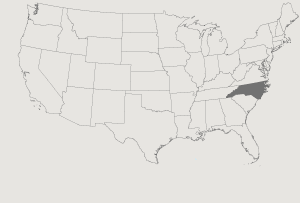Culture Anglo


- African American
- Afro-Cuban
- Alaska Native
- Anglo
- Apache
- Armenian
- Asian
- Basque
- Brazilian
- Cajun
- Cambodian
- Chinese
- Chitimacha
- Cochito Pueblo
- Comanche
- Creole
- Croatian
- Crucian
- Czech
- Dakotah-Hidatsa
- Danish
- Ethiopian
- Filipino
- Finnish
- French
- German
- Ghanaian
- Greek
- Guinean
- Gypsy
- Haida
- Haitian
- Hispanic
- Hmong
- Hocak
- Hunkpapa Sioux
- Hupa-Yurok
- Inupiaq
- Iranian
- Iraqi
- Irish
- Isleño
- Italian
- Japanese
- Jewish
- Kashia Pomo
- Kiowa
- Klickitat
- Korean
- Lakota Sioux
- Laotian
- Lebanese
- Lummi
- Menominee / Potowatomi
- Mesquakie
- Mexican
- Mohawk
- Native American
- Native Hawaiian
- Navajo
- Nez Perce
- North Indian
- Norwegian
- Odawa
- Ojibwe
- Okinawan
- Omaha
- Oneida
- Osage
- Passamaquoddy
- Peruvian
- Polish
- Pontic
- Puerto Rican
- Pyramid Lake Paiute
- Sac and Fox/Pawnee
- Salish
- Santa Clara Pueblo
- Scottish
- Serbian
- Serbo-Croatian
- Shoshone
- Skagit
- Skokomish
- Slovak American
- Slovenian
- South Indian
- Swedish
- Tewa
- Tibetan
- Tidewater
- Tlingit
- Tolowa
- Trinidadian
- Ukrainian
- Vietnamese
- Wasco
- Western Mono
- Yakama-Coleville
- Yup'ik
Artist Doug Wallin


- Kenny Baker
- Sister Mildred Barker
- Earnest Bennett
- Nicholas Benson
- Ralph Blizard
- Jerry Brown
- Dale Calhoun
- Janette Carter
- Jim "Texas Shorty" Chancellor
- Bertha Cook
- Burlon Craig
- Clyde Davenport
- Amber Densmore
- Hazel Dickens
- Jerry Douglas
- Lyman Enloe
- Thomas Edison "Brownie" Ford
- Johnny Gimble
- Jim Griffith
- Charles E. Hankins
- Dale Harwood
- Wayne Henderson
- Bea Ellis Hensley
- Ray Hicks
- Stanley Hicks
- Bob Holt
- Wanda Jackson
- Tommy Jarrell
- Will Keys
- Bettye Kimbrell
- Don King
- Dudley Laufman
- Doyle Lawson
- Lily May Ledford
- Wade Mainer
- Del McCoury
- Judith McCulloh
- Hugh McGraw
- Bob McQuillen
- Wallace McRae
- Jim and Jesse McReynolds
- Lanier Meaders
- Elmer Miller
- Bill Monroe
- Mabel E. Murphy
- Joel Nelson
- Frank Newsome
- Glenn Ohrlin
- Vernon Owens
- Eddie Pennington
- Mary Jane Queen
- Buck Ramsey
- Ola Belle Reed
- Almeda Riddle
- Jean Ritchie
- Earl Scruggs
- Mike Seeger
- Duff Severe
- Morgan Sexton
- Harry V. Shourds
- Kenny Sidle
- Robert Spicer
- Ralph Stanley
- Ralph W. Stanley
- Alex Stewart
- Nancy Sweezy
- Nicholas Toth
- Doug Wallin
- Don Walser
- Lem Ward
- Newton Washburn
- Arthel "Doc" Watson
- Francis Whitaker
- Joseph T. Wilson
- Melvin Wine
- Mac Wiseman
- Nimrod Workman
- Mike Auldridge
- Paul and Darlene Bergren
- Harold A. Burnham
- Albert B. Head
- Sheila Kay Adams
- David Ivey
- Daniel Sheehy
- Dolly Jacobs





